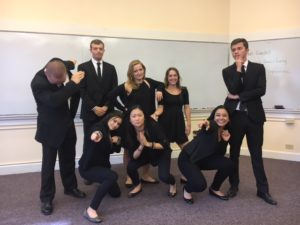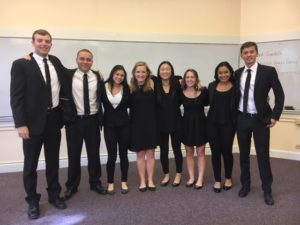You should be an HOD major if…
Human and Organizational Development, or HOD for short, is the most popular major at Vanderbilt. While it is sometimes difficult to describe to others what this long string of words really mean, I usually call it a mix between business, communication, and psychology. There is a specific Human and Organizational Development Department in Peabody College that is the glorious home to this undergraduate program. Below are a few reasons why you should consider joining the HOD crowd!
You love people or working in groups. If you are going to be an HOD major, you are going to have to  work in groups. A lot. While this is not for everyone, it is definitely a skill that will be useful both in work and general life settings. Most times I still prefer working solo but HOD has taught be the benefits of collaborating with others and using each person’s strengths to form the most cohesive team possible.
work in groups. A lot. While this is not for everyone, it is definitely a skill that will be useful both in work and general life settings. Most times I still prefer working solo but HOD has taught be the benefits of collaborating with others and using each person’s strengths to form the most cohesive team possible.
HOD 1300, Small Group Behavior, is the ultimate test of group work (while it is frustrating at times, I met some people who I adore and would have never met otherwise).
You love solving problems. HOD prides itself on its motto of helping to find solutions to human problems in organizations and communities. You will memorize this line by heart if you end up declaring HOD! For the problem-solver and big picture people, you will excel.

You want to learn more about yourself. Only in hindsight do I see how unaware I was of myself, true my likes and dislikes, and the way I process information. Through personality and Strengths Finder tests in HOD 2400, Talent Management and Organizational Fit, you will learn more about yourself than you ever wanted to know. Personally, I am an INFJ (Meyers-Briggs Type Indicator), an Internal Processor (Processing Style), a Reflector (Learning Style), and have 5 personal strengths (StrengthsFinder). The list goes on and on — and more importantly, I learned that it’s okay if I don’t think I want to go into/would be successful in the industries that are praised and that most people want to enter. Now, I realize I would fit better elsewhere, and HOD helped me discover that.
Being hands-on is one of the best methods for you to learn. Like I said before, HOD majors do a lot of group work. We also do projects and assignments that involve a lot of creativity and trial-and-error. On top of that, HOD students put their skills to the test when they complete a full-time, semester long internship during their junior or senior year. What better way to learn than on the job? An extra perk is that you can do this in Nashville, San Francisco, Chicago, New York City, Washington D.C., and London.
You want to learn the basics, but also take classes that speak to your interests. All HOD majors have 20 hours, or generally 6 classes, of core major courses that they need to take. We also have 40 hours of the Peabody Liberal Core classes, which include philosophy, communications, humanities, math, science, etc. (note: this is NOT the same as AXLE in the college of Arts & Sciences! I found it less rigid and easier to complete). However, after this general curriculum students have room for their individual interests and passions. Each student has to declare an HOD track — Community Leadership and Development, Health and Human Services, International Leadership and Development, Leadership and Organizational Effectiveness (the most popular, often called LOE), and Education Policy. Under each track there are more specialized classes that pertain to students’ future endeavors.

You want to go into consulting/healthcare administration/marketing/finance/have a job after graduation. HOD really improves “soft skills” — that will be applicable to any job after graduation. Alums from the major go into a myriad of careers. I was worried about being committed to a certain career based on my major, but there are a wide range of possibilities thanks to HOD!